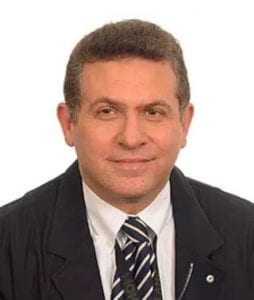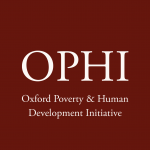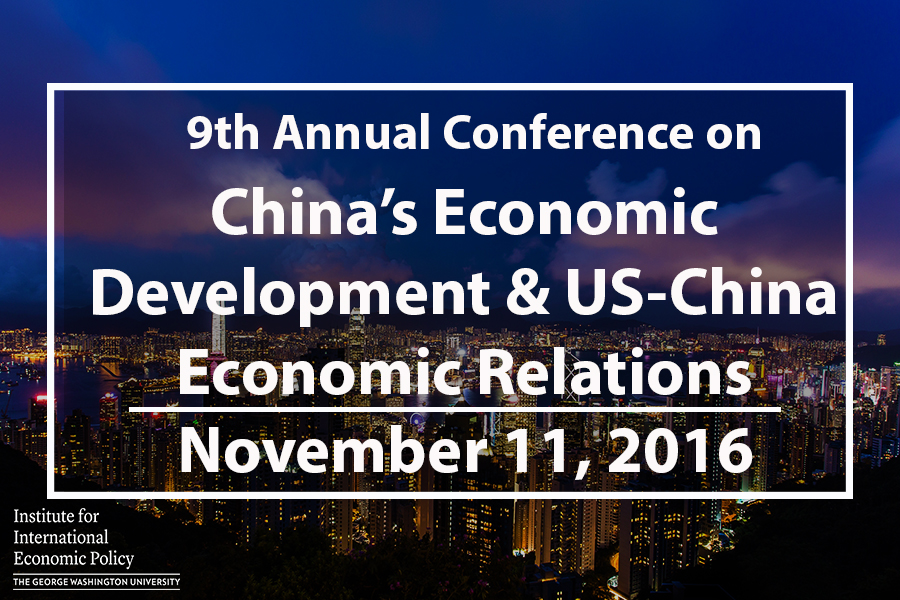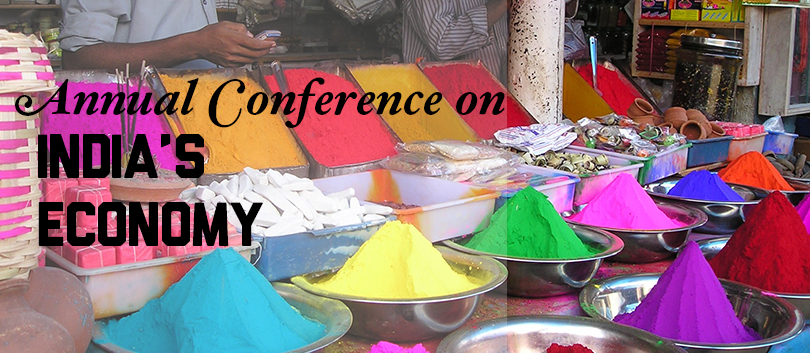This was the fourth webinar in the “Envisioning India” series, co-sponsored by the Sigur Center for Asian Studies and the Institute for International Economic Policy. It is a platform for dialogue and debate. We invited you to engage with us in this series of important discussions.
The “Envisioning India” series is organized under the stewardship of IIEP Co-Director James Foster, Oliver T. Carr, Jr. Professor of International Affairs and Professor of Economics, and IIEP Distinguished Visiting Scholar Ajay Chhibber. The fourth event, “Saving Indian Capitalism from Its Capitalists” featured Pranab Bardhan, Professor of Economics at University of California-Berkeley, with Jean Dreze of Ranchi University and Michael Walton of the Harvard Kennedy School as discussants. The discussion was moderated by Professor James Foster, with an introduction by Dr. Ajay Chhibber.
There are often conflicts in the interests of capital, between the individual capitalist and the capitalist class as a whole, or between the short-term and long-term interests of capital. In this talk Prof. Bardhan will give examples of this from the Indian debates on labor reform, health policy, policy relating to vocational education, and from the adverse effects of the growing concentration of capital and wealth distribution.
The Indian Government recently enacted a major labor reform that has been widely acclaimed in the business press and by many reform-mongering economists. The attempt to bring some order to the tangled mess that the old labor laws were in is welcome, as is more ‘flexibility’ in labor employment, but as part of a package deal with a reasonable scheme of unemployment benefits for workers; instead the new laws make the already insecure life of workers even more insecure. Capitalists envisioning a longer horizon should be aware that an insecure, disgruntled and unstable labor force is a sure bet for low productivity. Health Policy and Vocational Education also show cases where a more prudent corporate sector would have encouraged serious alternatives; this will be elucidated in the talk.
More broadly, in India the data suggest that corporate concentration and inequality in wealth distribution are galloping, and this is bound to have a negative effect on overall productivity and innovations, which is against the long-term interests of capitalism, even though it may give a boost to short-term earnings of individual capitalists. Compared to some other capitalist countries, India is more of a crony oligarchy that is cozy with the current regime, which is not conducive to a healthy development of capitalism in India. Nor is the rise in inequality that exacerbates demand deficiency, or the brazen dilution of environmental regulations that poisons and uproots community life.
About the Speakers:
 Pranab Bardhan is Professor of Graduate School at the Department of Economics at the University of California, Berkeley.
Pranab Bardhan is Professor of Graduate School at the Department of Economics at the University of California, Berkeley.
He was educated at Presidency College, Kolkata and Cambridge University, England. He had been at the faculty of MIT, Indian Statistical Institute and Delhi School of Economics before joining Berkeley. He has been Visiting Professor/Fellow at Trinity College, Cambridge, St. Catherine’s College, Oxford, and London School of Economics. He held the Distinguished Fulbright Siena Chair at the University of Siena, Italy in 2008-9. He was the BP Centennial Professor at London School of Economics for 2010 and 2011. He got the Guggenheim Fellowship in 1982.
He has done theoretical and field studies research on rural institutions in poor countries, on political economy of development policies, and on international trade. A part of his work is in the interdisciplinary area of economics, political science, and social anthropology. He was Chief Editor of the Journal of Development Economics for 1985-2003. He was the co-chair of the MacArthur Foundation-funded Network on the Effects of Inequality on Economic Performance for 1996-2007.
He is the author of 16 books and editor of 14 other books, and author of more than 150 journal articles including in leading Economics journals (like American Economic Review, Quarterly Journal of Economics, Econometrica, Journal of Political Economy, Review of Economic Studies, Economic Journal, American Economic Journal, Journal of Development Economics, Journal of Public Economics, Economic Development and Cultural Change, Oxford Economic Papers, etc.).
He has also contributed essays to popular outlets like New York Times, Scientific American, Financial Times, Die Zeit, Boston Review, Los Angeles Review of Books, Project Syndicate, Yale Global Online, Times of India, Economic Times, Business Standard, Bloomberg Quint, Hindustan Times, Ideas for India, Economic and Political Weekly, Indian Express, Ananda Bazar Patrika (in Bengali), etc. From 2018 he has started writing a periodic column for a New York-based blog, 3 Quarks Daily.
 Jean Dreze studied Mathematical Economics at the University of Essex and did his Ph.D. at the Indian Statistical Institute, New Delhi. He has taught at the London School of Economics and the Delhi School of Economics, and is currently Visiting Professor at Ranchi University as well as Honorary Professor at the Delhi School of Economics. He has made wide-ranging contributions to development economics and public policy, with special reference to India. His research interests include rural development, social inequality, elementary education, child nutrition, health care and food security. Jean Drèze is co-author (with Amartya Sen) of Hunger and Public Action (Oxford University Press, 1989) and An Uncertain Glory: India and Its Contradictions (Penguin, 2013)”, and also one of the co-authors of the Public Report on Basic Education in India, also known as “PROBE Report”.
Jean Dreze studied Mathematical Economics at the University of Essex and did his Ph.D. at the Indian Statistical Institute, New Delhi. He has taught at the London School of Economics and the Delhi School of Economics, and is currently Visiting Professor at Ranchi University as well as Honorary Professor at the Delhi School of Economics. He has made wide-ranging contributions to development economics and public policy, with special reference to India. His research interests include rural development, social inequality, elementary education, child nutrition, health care and food security. Jean Drèze is co-author (with Amartya Sen) of Hunger and Public Action (Oxford University Press, 1989) and An Uncertain Glory: India and Its Contradictions (Penguin, 2013)”, and also one of the co-authors of the Public Report on Basic Education in India, also known as “PROBE Report”.
 Michael Walton is Senior Lecturer in Public Policy at the Harvard Kennedy School, where he has taught since 2004 and is a visiting fellow at the Centre for Policy Research, Delhi. He also works with the non-profit IMAGO Global Grassroots whose goal is to take established grassroots organizations to the next level, working especially in India, Latin America and the United States. In addition to core teaching in HKS’ MPA in International Development, he leads the signature on-line course on Policy Design and Delivery. Michael was VKRV Rao Professor at the Institute for Social and Economic Change, Bangalore in 1998 and 1999, and visiting professor at the Delhi School of Economics in 1998. Before academia, Michael worked for 20 years at the World Bank, including on Brazil, Indonesia, Mexico, and Zimbabwe. While there he led two and worked on two other World Development Reports (on Poverty in 1990 and 2000, on Labor in 1995, and Inequality in 2005). Book publications include co-edited volumes on Culture and Public Action, and No Growth without Equity? on Mexico. Current research in India, includes work on Self Help Groups and on scaling up of social enterprises of the Self Employed Women’s Association. Michael is also a dancer. He has a B.A. in Philosophy and Economics and an M.Phil. in Economics from Oxford University.
Michael Walton is Senior Lecturer in Public Policy at the Harvard Kennedy School, where he has taught since 2004 and is a visiting fellow at the Centre for Policy Research, Delhi. He also works with the non-profit IMAGO Global Grassroots whose goal is to take established grassroots organizations to the next level, working especially in India, Latin America and the United States. In addition to core teaching in HKS’ MPA in International Development, he leads the signature on-line course on Policy Design and Delivery. Michael was VKRV Rao Professor at the Institute for Social and Economic Change, Bangalore in 1998 and 1999, and visiting professor at the Delhi School of Economics in 1998. Before academia, Michael worked for 20 years at the World Bank, including on Brazil, Indonesia, Mexico, and Zimbabwe. While there he led two and worked on two other World Development Reports (on Poverty in 1990 and 2000, on Labor in 1995, and Inequality in 2005). Book publications include co-edited volumes on Culture and Public Action, and No Growth without Equity? on Mexico. Current research in India, includes work on Self Help Groups and on scaling up of social enterprises of the Self Employed Women’s Association. Michael is also a dancer. He has a B.A. in Philosophy and Economics and an M.Phil. in Economics from Oxford University.
This event was sponsored with the Sigur Center for Asian Studies.
 Ricardo Nogales (Universidad Privada de Bolivia and Oxford Poverty and Human Development Initiative, University of Oxford)
Ricardo Nogales (Universidad Privada de Bolivia and Oxford Poverty and Human Development Initiative, University of Oxford) Nicolai Suppa (Centre for Demographic Studies, Universidad Autónoma de Barcelona and Oxford Poverty and Human Development Initiative, University of Oxford)
Nicolai Suppa (Centre for Demographic Studies, Universidad Autónoma de Barcelona and Oxford Poverty and Human Development Initiative, University of Oxford)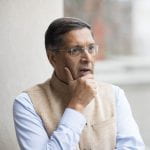 Arvind Subramanian, Chief Economic Adviser (CEA) to the Government of India between 2014 and 2018, is now Senior Fellow, Brown University’s Watson Institute for International and Public Affairs and Distinguished Senior Fellow, Center for Global Development. Previously, he was Professor at Ashoka University (2020-21), taught at the Harvard Kennedy School (2018-2020), and was the Dennis Weatherstone Senior Fellow at the Peterson Institute for International Economics (2011-2014). Foreign Policy magazine named him as one of the world’s top 100 global thinkers in 2011. As CEA, he oversaw the publication of the annual Economic Survey of India, which became a widely read document on Indian economic policy and development. For example, the 2018 Survey had 20 million views from over 190 countries in its first year of publication. Among the major ideas and policies he initiated and helped implement were a simplified goods and services tax (GST), attempts to tackle the Twin Balance Sheet challenge, creating the financial and digital platform for connectivity (the so-called JAM trinity), charting a new fiscal framework, and Universal Basic Income. Announcing his departure as CEA, the former Finance Minister, Mr. Arun Jaitley wrote a Facebook post,
Arvind Subramanian, Chief Economic Adviser (CEA) to the Government of India between 2014 and 2018, is now Senior Fellow, Brown University’s Watson Institute for International and Public Affairs and Distinguished Senior Fellow, Center for Global Development. Previously, he was Professor at Ashoka University (2020-21), taught at the Harvard Kennedy School (2018-2020), and was the Dennis Weatherstone Senior Fellow at the Peterson Institute for International Economics (2011-2014). Foreign Policy magazine named him as one of the world’s top 100 global thinkers in 2011. As CEA, he oversaw the publication of the annual Economic Survey of India, which became a widely read document on Indian economic policy and development. For example, the 2018 Survey had 20 million views from over 190 countries in its first year of publication. Among the major ideas and policies he initiated and helped implement were a simplified goods and services tax (GST), attempts to tackle the Twin Balance Sheet challenge, creating the financial and digital platform for connectivity (the so-called JAM trinity), charting a new fiscal framework, and Universal Basic Income. Announcing his departure as CEA, the former Finance Minister, Mr. Arun Jaitley wrote a Facebook post, 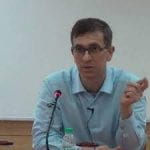
 Dr. Kalpana Kochhar is Director, Development Policy and Finance at the Bill and Melinda Gates Foundation. Prior to taking this position, she spent 33 years at the IMF, ending her career there as the Director of the Human Resources Department of the IMF between 2016 and 2021. She has also held positions as Deputy Director in the Asia and Pacific Department of the IMF where she worked on India, China, Korea, Japan and several other Asian countries, and in the Strategy, Policy and Review Department where she launched the IMF’s work on the macroeconomic implications of gender inequality and women’s economic empowerment. Between 2010 and 2012, she was seconded to the World Bank as the Chief Economist for the South Asia Region of the World Bank. Ms. Kochhar’s research interests and publications have been on emerging markets including India and China, and jobs and inclusive growth, gender and inequality issues, structural reforms, and regional integration in South Asia. She holds a Ph.D. and an M.A. in Economics from Brown University and an M.A. in Economics from Delhi School of Economics in India. She has a B.A in Economics from Madras University in India.
Dr. Kalpana Kochhar is Director, Development Policy and Finance at the Bill and Melinda Gates Foundation. Prior to taking this position, she spent 33 years at the IMF, ending her career there as the Director of the Human Resources Department of the IMF between 2016 and 2021. She has also held positions as Deputy Director in the Asia and Pacific Department of the IMF where she worked on India, China, Korea, Japan and several other Asian countries, and in the Strategy, Policy and Review Department where she launched the IMF’s work on the macroeconomic implications of gender inequality and women’s economic empowerment. Between 2010 and 2012, she was seconded to the World Bank as the Chief Economist for the South Asia Region of the World Bank. Ms. Kochhar’s research interests and publications have been on emerging markets including India and China, and jobs and inclusive growth, gender and inequality issues, structural reforms, and regional integration in South Asia. She holds a Ph.D. and an M.A. in Economics from Brown University and an M.A. in Economics from Delhi School of Economics in India. She has a B.A in Economics from Madras University in India.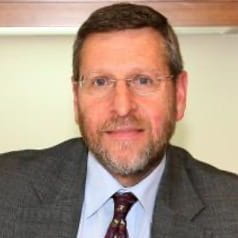 is a senior fellow in the John L. Thornton China Center at the Brookings Institution and host of the Brookings trade podcast,
is a senior fellow in the John L. Thornton China Center at the Brookings Institution and host of the Brookings trade podcast, 

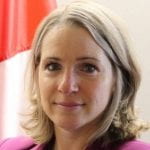







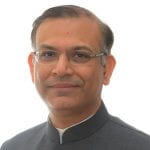

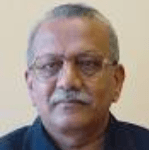 Nitin Desai has had a long and distinguished career in the Government of India and the United Nations. He has also worked for some time in private industry and taught at two UK Universities.
Nitin Desai has had a long and distinguished career in the Government of India and the United Nations. He has also worked for some time in private industry and taught at two UK Universities.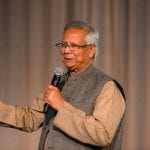









 Laveesh Bhandari is a Senior Fellow at CSEP. Laveesh will lead and develop the climate change capability at CSEP. In addition, he will help define the broad macro agenda and advise on the sub-national reform. Dr Bhandari is an economist, entrepreneur and an environmentalist. He is currently the Director of Indicus Foundation and leads its Environment and Sustainable Livelihoods initiative. Laveesh has published widely on subjects related to sustainable livelihoods, industrial, economic and social reforms in India, economic geography and financial inclusion. He received his PhD in economics from Boston University for which he was awarded the Best thesis in International Economics. He has taught economics in Boston University and IIT Delhi. He has been the managing editor of Journal of Emerging Market Finance, and worked at National Council of Applied Economic Research (NCAER), New Delhi. He has built, seeded, and exited from three companies in the research, analytics and digital domain.
Laveesh Bhandari is a Senior Fellow at CSEP. Laveesh will lead and develop the climate change capability at CSEP. In addition, he will help define the broad macro agenda and advise on the sub-national reform. Dr Bhandari is an economist, entrepreneur and an environmentalist. He is currently the Director of Indicus Foundation and leads its Environment and Sustainable Livelihoods initiative. Laveesh has published widely on subjects related to sustainable livelihoods, industrial, economic and social reforms in India, economic geography and financial inclusion. He received his PhD in economics from Boston University for which he was awarded the Best thesis in International Economics. He has taught economics in Boston University and IIT Delhi. He has been the managing editor of Journal of Emerging Market Finance, and worked at National Council of Applied Economic Research (NCAER), New Delhi. He has built, seeded, and exited from three companies in the research, analytics and digital domain.

 Stephen Kaplan is an Associate Professor of Political Science and International Affairs. Professor Kaplan’s research and teaching interests focus on the frontiers of international and comparative political economy, where he specializes in the political economy of global finance and development, the rise of China in the Western Hemisphere, and Latin American politics.
Stephen Kaplan is an Associate Professor of Political Science and International Affairs. Professor Kaplan’s research and teaching interests focus on the frontiers of international and comparative political economy, where he specializes in the political economy of global finance and development, the rise of China in the Western Hemisphere, and Latin American politics. Professor Carol Wise, Department of Political Science and International Relations, University of Southern California (USC), has written widely on trade integration, exchange rate crises, institutional reform, and the political economy of market restructuring in the Latin American region. Wise is author of the book, Dragonomics: How Latin America is Maximizing (or Missing Out) on China’s International Development Strategy (Yale University Press, 2020), which received USC’s Phi Kappa Phi Faculty Recognition Award in 2021 and the Luciano Tomassini 2021 Award-Honorable Mention for the Best Book on International Relations from the Latin American Studies Association. Professor Wise’s most recent journal articles include: “Playing both Sides of the Pacific: Latin America’s Free Trade Agreements (FTAs) with China,” Pacific Affairs (2016); “Conceptualizing China-Latin America Relations in the 21 st Century” (with Victoria Chonn Ching), The Pacific Review (2017); and, “International Trade Norms in the Age of Covid-19” (with Nicolas Albertoni), Fudan Humanities and Social Science Journal (2020). Professor Wise has held Fulbright Grants to Canada, Mexico, and Peru. She is a member of the core social science faculty at Renmin University’s annual International Summer Program, Beijing. In 2019, Wise was the Fulbright-Masaryk University Distinguished Chair in the Czech Republic. Her latest research compares the political economy of development in Latin America and Central/Eastern Europe.
Professor Carol Wise, Department of Political Science and International Relations, University of Southern California (USC), has written widely on trade integration, exchange rate crises, institutional reform, and the political economy of market restructuring in the Latin American region. Wise is author of the book, Dragonomics: How Latin America is Maximizing (or Missing Out) on China’s International Development Strategy (Yale University Press, 2020), which received USC’s Phi Kappa Phi Faculty Recognition Award in 2021 and the Luciano Tomassini 2021 Award-Honorable Mention for the Best Book on International Relations from the Latin American Studies Association. Professor Wise’s most recent journal articles include: “Playing both Sides of the Pacific: Latin America’s Free Trade Agreements (FTAs) with China,” Pacific Affairs (2016); “Conceptualizing China-Latin America Relations in the 21 st Century” (with Victoria Chonn Ching), The Pacific Review (2017); and, “International Trade Norms in the Age of Covid-19” (with Nicolas Albertoni), Fudan Humanities and Social Science Journal (2020). Professor Wise has held Fulbright Grants to Canada, Mexico, and Peru. She is a member of the core social science faculty at Renmin University’s annual International Summer Program, Beijing. In 2019, Wise was the Fulbright-Masaryk University Distinguished Chair in the Czech Republic. Her latest research compares the political economy of development in Latin America and Central/Eastern Europe. Roselyn Hsueh is an Associate Professor of Political Science at Temple University in Philadelphia, where she codirects the Certificate in Political Economy. She is the recipient of the Fulbright Global Scholar Award for research in India, Mexico, and Russia. Her next book, Micro-Institutional Foundations of Capitalism: Sectoral Pathways to Globalization in China, India, and Russia, is under contract with Cambridge University Press. She is the author of China’s Regulatory State: A New Strategy for Globalization (Cornell, 2011), and scholarly articles and book chapters. BBC World News, The Economist, Foreign Affairs, National Public Radio, The Washington Post, and other media outlets have featured her research. She has testified before the U.S.-China Economic and Security Review Commission and consulted for The Center for Strategic and International Studies. Dr. Hsueh has served as a Global Order Visiting Scholar at the University of Pennsylvania, member of the Georgetown Initiative for U.S.-China Dialogue on Global Issues, and Residential Research Faculty Fellow at U.C. Berkeley. She also lectured as a Visiting Professor at Tecnológico de Monterrey in Mexico. She held the Hayward R. Alker Postdoctoral Fellowship at the University of Southern California and conducted international fieldwork in China, Japan, and Taiwan as a U.S. Fulbright Scholar and David L. Boren National Security Fellow. She earned her B.A. and doctorate in Political Science from the University of California, Berkeley.
Roselyn Hsueh is an Associate Professor of Political Science at Temple University in Philadelphia, where she codirects the Certificate in Political Economy. She is the recipient of the Fulbright Global Scholar Award for research in India, Mexico, and Russia. Her next book, Micro-Institutional Foundations of Capitalism: Sectoral Pathways to Globalization in China, India, and Russia, is under contract with Cambridge University Press. She is the author of China’s Regulatory State: A New Strategy for Globalization (Cornell, 2011), and scholarly articles and book chapters. BBC World News, The Economist, Foreign Affairs, National Public Radio, The Washington Post, and other media outlets have featured her research. She has testified before the U.S.-China Economic and Security Review Commission and consulted for The Center for Strategic and International Studies. Dr. Hsueh has served as a Global Order Visiting Scholar at the University of Pennsylvania, member of the Georgetown Initiative for U.S.-China Dialogue on Global Issues, and Residential Research Faculty Fellow at U.C. Berkeley. She also lectured as a Visiting Professor at Tecnológico de Monterrey in Mexico. She held the Hayward R. Alker Postdoctoral Fellowship at the University of Southern California and conducted international fieldwork in China, Japan, and Taiwan as a U.S. Fulbright Scholar and David L. Boren National Security Fellow. She earned her B.A. and doctorate in Political Science from the University of California, Berkeley.

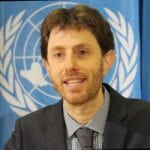
 Presenter: Ricardo Santos is a Research Fellow of the United Nations University World Institute of Development Economics Research – UNU-WIDER, stationed in Maputo, Mozambique, as Technical Advisor to the Centre of Economics and Management Studies at the Faculty of Economics of Eduardo Mondlane University. His doctoral research examined the post-conflict labour market and education sector in Timor-Leste, looking at the medium-run impact of exposure to violence and conflict produce on the households’ choices regarding education. His recent research has focused on the Mozambican labour market, school-to-work transition and on poverty and inequality. His previous work in the development field includes voluntary work for one year in Timor-Leste as a member of a Portuguese NGO and, Program Manager for Timor-Leste and Angola and Deputy Executive Officer of the same NGO.
Presenter: Ricardo Santos is a Research Fellow of the United Nations University World Institute of Development Economics Research – UNU-WIDER, stationed in Maputo, Mozambique, as Technical Advisor to the Centre of Economics and Management Studies at the Faculty of Economics of Eduardo Mondlane University. His doctoral research examined the post-conflict labour market and education sector in Timor-Leste, looking at the medium-run impact of exposure to violence and conflict produce on the households’ choices regarding education. His recent research has focused on the Mozambican labour market, school-to-work transition and on poverty and inequality. His previous work in the development field includes voluntary work for one year in Timor-Leste as a member of a Portuguese NGO and, Program Manager for Timor-Leste and Angola and Deputy Executive Officer of the same NGO.




